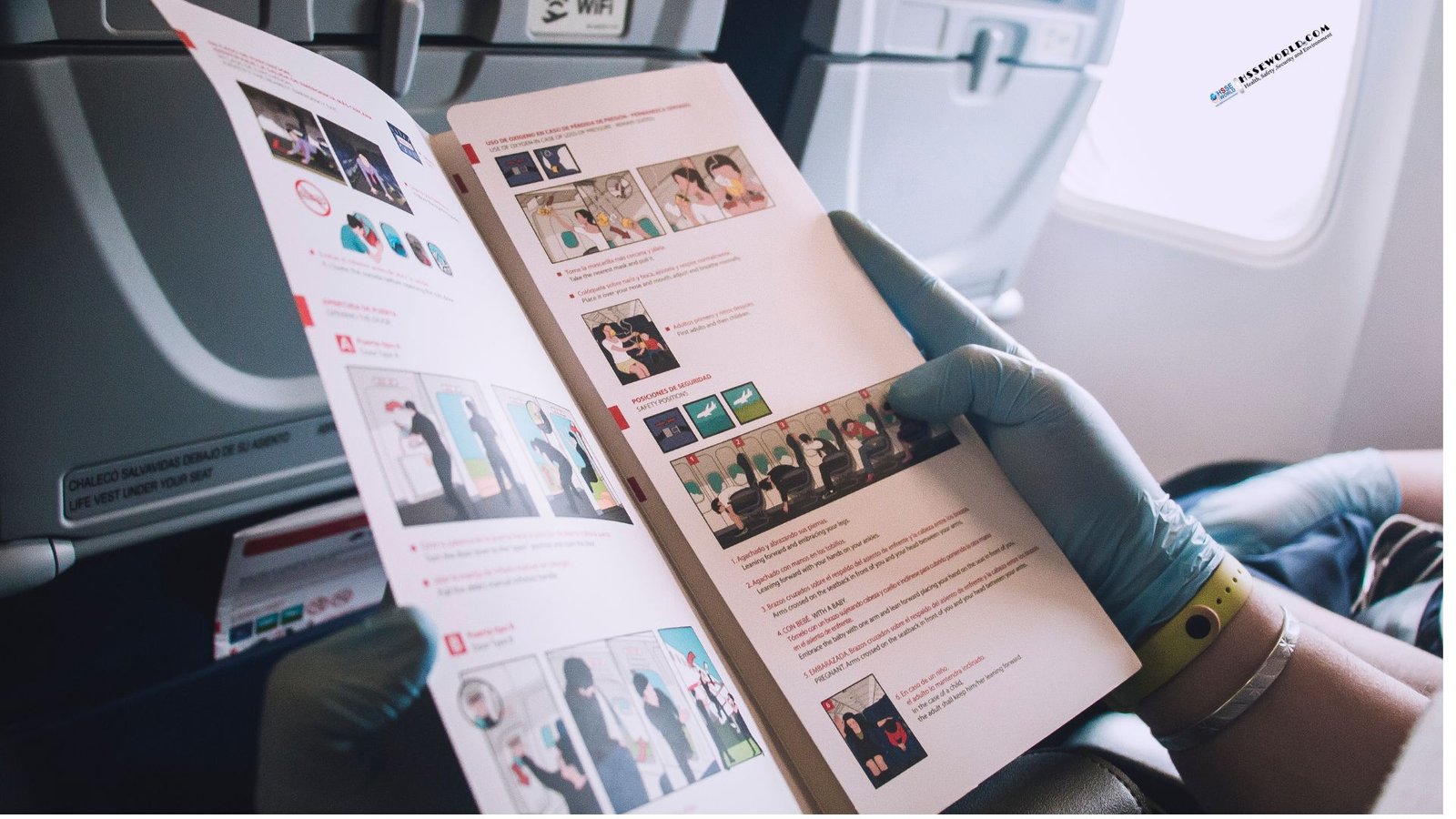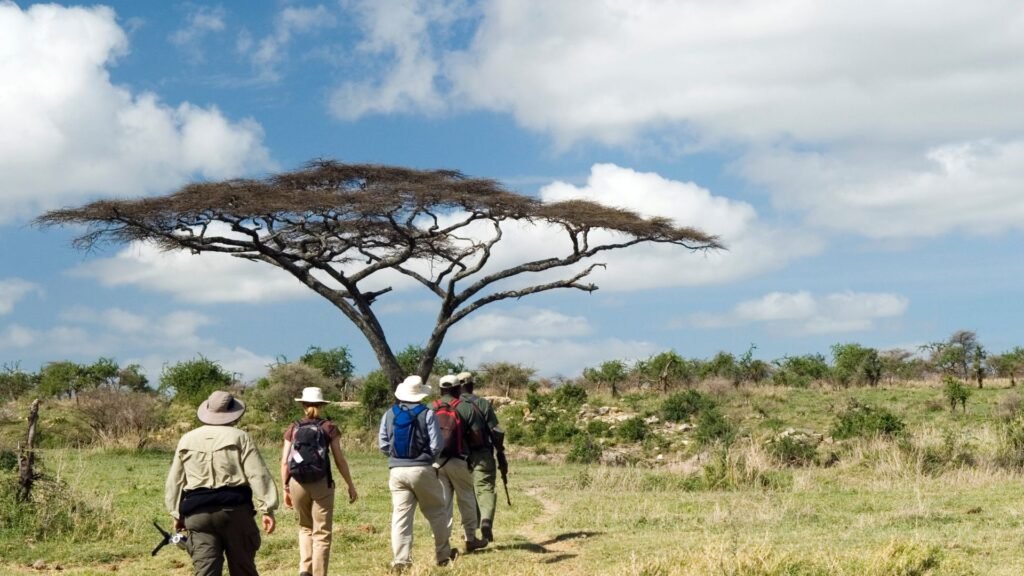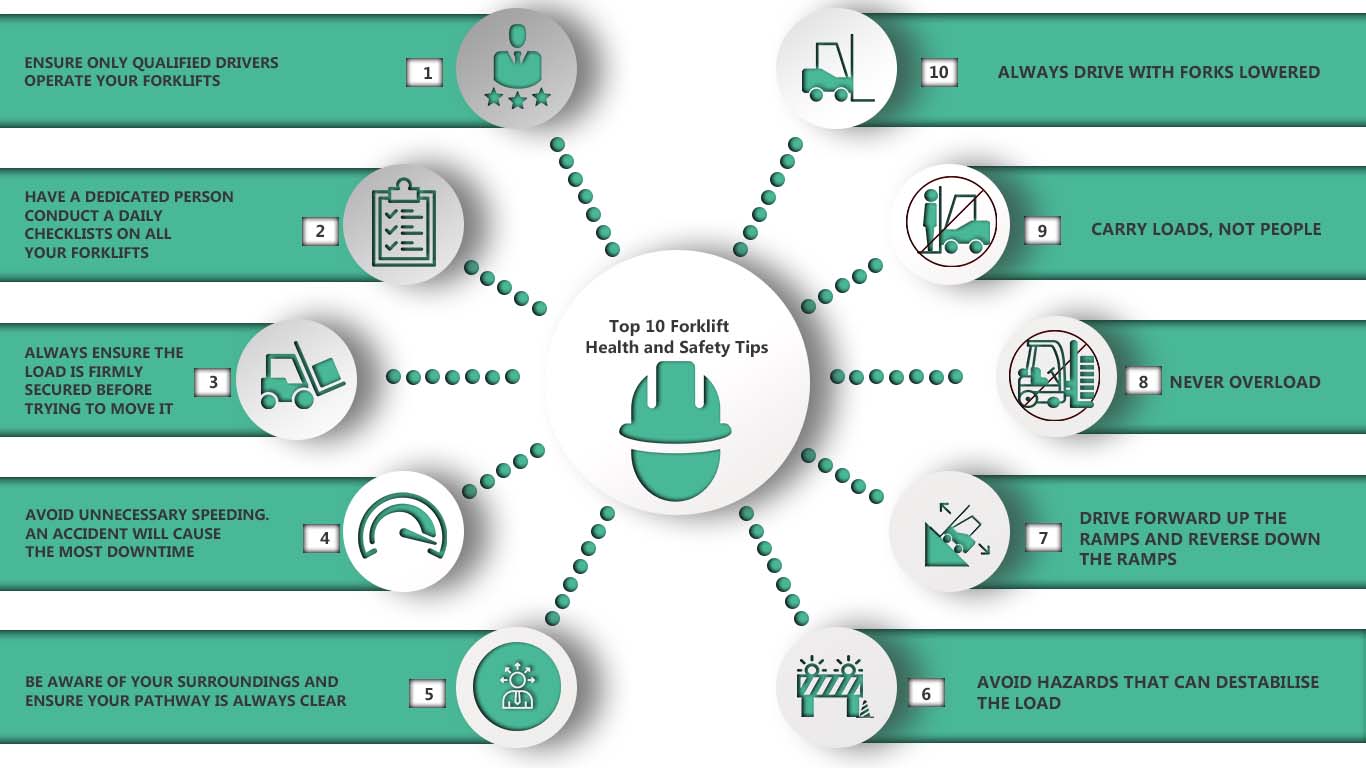The guide is the most essential ingredient when you go on a safari. Whether on a solo trip, with your family, or part of a group travel, your entire experience will be marred if you need a well-informed guide accompanying you. The guide is, undoubtedly, the most crucial element of your safari experience. Your everyday experience will become a memorable one when you have the right guide with you. And like any other profession, only a handful of skilled guides genuinely know the ins and outs of the safari. When booking your accommodation at saseka tented camp, ensure they have trained guides and ranchers who will accompany you on your jungle safari.

Understanding the Importance of a Good Safari Guide
When embarking on a safari, the guide is more than a tour operator; they are your window to the natural world and custodian of your safety. A competent safari guide does more than just point out animals. They interpret the behavior of wildlife, provide insight into the ecosystems, and share anecdotes that enrich the overall experience. Moreover, they are trained to handle emergencies, whether medical situations or unexpected encounters with wildlife.
A good guide’s expertise ensures that guests can spot elusive creatures and understand subtle nuances of the wild. They know the perfect times of day and the best locations for wildlife viewing. Their tracking skills often mean the difference between a mediocre experience and a spectacular one.
Knowledge of local culture and history is another facet of a guide’s role. This information helps travellers appreciate the broader context of the regions they visit, making the journey as culturally enlightening as it is adventurous.
Another critical aspect that a skilled guide brings to the table is the ability to read guests’ interests and tailor the experience to their preferences, whether that means spending more time photographing landscapes or observing a particular species.
Lastly, guides ensure that safaris are conducted responsibly, with a minimal ecological footprint. They are ambassadors for conservation, teaching guests about sustainable tourism and the importance of preserving wilderness areas.
To sum up, in the complex dynamic of a safari environment, a good guide serves as an educator, protector, and steward of both the guest experience and the natural world. Choosing the right guide is pivotal to creating memories that will last a lifetime and to the conservation of the priceless habitats that make such adventures possible.
Qualifications to Look for in a Professional Safari Guide
When choosing the best safari guide, it’s crucial to consider a complex set of qualifications that blend education, experience, and soft skills to ensure your adventure is both safe and unforgettable.

- Certification and Training: Professional safari guides should hold a certification from a recognized institution. In many south africa safari tour, this means having qualifications like the Field Guides Association of Southern Africa (FGASA) certification or equivalent. Additionally, look for guides who have undergone first aid and emergency response training for handling unforeseen situations in the wild.
- Local Knowledge: An intimate understanding of the local terrain, wildlife behavior, and ecosystems is essential. Experienced guides possess an in-depth knowledge of the area’s history, culture, and biodiversity, which can greatly enhance the safari experience.
- Communication Skills: The ability to articulate and convey information clearly is essential for a guide to share fascinating insights about wildlife and landscapes. They should be fluent in the language used by the tour group and capable of engaging with guests of all ages.
- Experience: Extensive experience leading safaris adds to a guide’s capacity to navigate the wilderness safely and encounter wildlife responsibly. Out of all applicants, prioritize those who have successfully conducted multiple tours and show consistent client satisfaction.
- Soft Skills: A guide’s patience, sense of humor, and ability to remain calm under pressure contribute to the group’s enjoyment and safety. They should exhibit respect for the environment and encourage the same from their guests.
- References and Reviews: Check past guest reviews and ask for references. Feedback from former clients offers valuable insights into the guide’s reliability, expertise, and ability to create a memorable safari experience.
By considering these qualifications, you’ll be well-equipped to select a safari guide who meets professional standards and can deliver a thrilling yet secure journey into the wild.
Evaluating Experience and Knowledge of Locale
When on the hunt for an unparalleled safari guide, meticulously assessing their familiarity with the local environment and their relevant field experience becomes non-negotiable. Recognizing a guide’s expertise can vastly enhance the safety and richness of your safari experience.
First, inquire about the guide’s duration of residency and guiding within the region. Prolonged exposure to the locale ideally translates into an intimate knowledge of the unique behavioral patterns of wildlife and the seasonal dynamics of the area. Seasoned guides adept in tracking and anticipating animal movements can navigate you to the most captivating scenes safely.
Moreover, delve into their education and continuous learning endeavors. Solid formal training, such as degrees or certificates in conservation, zoology, or tourism, coupled with current knowledge of conservation efforts and ecological changes, is indicative of a well-informed guide.
- Assess their professional affiliations – membership in guiding associations or conservation bodies often correlates with adherence to high industry standards.
- Examine the guide’s language proficiency, particularly in the local language, which could prove invaluable during cultural interactions or emergencies.
- Look into their first-aid certification and crisis management skills, essential for handling any unforeseeable situations.
A guide’s approach towards sensitivity about cultural norms and eco-conscious practices also speaks volumes about their respect for the locale. Finally, peruse reviews and testimonials from previous adventurers. Direct accounts can provide incredible insight into a guide’s expertise and reliability in creating memorable and secure safari experiences.
Assessing Communication Skills and Language Proficiency
Selecting a safari guide who is an adept communicator can considerably enhance the experience of a wildlife expedition. Flawless communication ensures that guests understand safety instructions, learn about the environment, and fully enjoy the storytelling aspect of the adventure.
A successful safari guide is a good conversationalist. He should be able to communicate well and understand all your requirements. The trip will suffer if there is a language barrier or he needs to communicate more clearly. There will be a communication gap, and soon, you will resent his presence.
When considering a guide’s communication skills, observe the following:
- Clarity of Speech: The guide should articulate information concisely and clearly. Misunderstandings or a lack of clarity can be dangerous in the wilderness.
- Command of Language: Proficiency in the language spoken by the tour group is crucial. It eases the flow of information and allows for questions to be answered with precision.
- Engagement Ability: A guide should engage with all group members, ensuring that each person is involved in the experience. They must be attentive to different guests’ needs for information and clarification.
- Cultural Sensitivity: The guide should communicate in a way that is respectful of cultural differences and able to bridge any language barriers with tact and understanding.
- Non-Verbal Communication: Much of communication is non-verbal. A good guide will use body language to reinforce their spoken words and will be adept at reading the body language of others.
Moreover, one can consider the following methods to assess these skills:
- Testimonials: Reviews from past guests can provide insight into the guide’s ability to communicate effectively.
- Personal Interaction: Engage the guide in conversation when possible, either via a preliminary video call or in-person meeting.
- Language Certifications: If necessary, ask for certifications or proof of language proficiency, especially if the safari is conducted in a non-native language for the guests.
Remember that a guide’s ability to communicate can be the difference between a good safari and an unforgettable one. Therefore, choosing someone with the requisite linguistic skills and an ability to connect with guests should be a priority.
overcome-language-barriers-in-safety-training
Safety First: Checking Training and Certifications
When embarking on a safari, the qualifications and expertise of your guide are pivotal in ensuring both safety and the quality of your experience. It is essential for the safari guide to possess the appropriate training and certifications that comply with local regulations and international safety standards.
- Confirm Professional Training: Begin by verifying that your potential guide has undergone professional training from a recognized institution. Well-trained guides ensure not only safety but also offer in-depth knowledge about the wildlife and ecosystems you will encounter.
- Check for First Aid Certification: In case of emergencies, a safari guide must be able to provide immediate medical assistance. Ensure they have a valid first aid certification, preferably with additional training in wilderness first aid.
- Evaluate Safety Record: Ask the guiding company about the safety record of their guides. A transparent company will have no issues providing this information. High safety standards usually indicate a commitment to professional conduct on the safari.
- Verify Communication Skills: While not a formal certification, strong communication is crucial for safety, particularly in potentially dangerous encounters. The guide must be able to give clear instructions and communicate effectively with guests.
- Enquire About Membership in Professional Bodies: Guides who are members of professional associations are often required to meet strict guidelines and ethical practices which contribute to the safety and standard of your tour.
- Review Renewal of Credentials: Certifications and training can become outdated. Ascertain that the guide’s credentials are current and regularly updated to reflect the latest safety protocols and conservation practices.
By meticulously vetting your safari guide’s training and certification, you not only assure your own safety but also contribute to responsible tourism that prioritizes the welfare of wildlife and their habitats.
Cultural Insight: The Guide’s Connection to the Local Community
Choosing the right safari guide is pivotal not only for spotting wildlife but also for gaining a deeper understanding of the local culture and community. Safari guides with a strong connection to the area offer invaluable insights into the customs, history, and challenges faced by the local people. This cultural immersion can transform a simple wildlife tour into a richer, more educational experience.
- Local Knowledge: An integral part of a guide’s repertoire, detailed knowledge of the area’s history, tribal customs, and language enriches the adventure. A well-connected guide often has personal stories and relationships with the inhabitants, providing a more nuanced view of the community dynamics.
- Sustainability Practices: Guides with a connection to the community are likely to practice and educate about sustainable tourism. They help ensure that your visit has a positive impact, supporting conservation efforts and the local economy.
- Encounters with locals are often facilitated by a guide who is part of the community. These can vary from visiting a village to participating in a cultural event or ceremony, offering a glance at life beyond the safari.
- Conservation Efforts: A guide’s involvement in conservation projects demonstrates a commitment to the well-being of the local environment and its residents. They might also work with organizations dedicated to protecting wildlife habitats that are crucial to both animals and humans.
- Ethical Engagement: A responsible guide will navigate the delicate balance between tourism and cultural respect. They educate visitors on appropriate behavior, ensuring that interactions with local communities are respectful and mutually beneficial.
Selecting a guide with authentic local connections can significantly enhance your safari experience, offering a perspective that goes beyond the typical tourist viewpoint. It is an opportunity to step into the shoes of the people who call the safari landscape their home.
Reading Reviews and Testimonials from Previous Clients
When selecting the best safari guide for an unforgettable and secure journey, one should meticulously peruse the feedback and testimonials of former clients. These evaluations provide a candid glimpse into the experiences of other adventurers and can serve as a critical indicator of a guide’s expertise and reliability.
First, look for comprehensive reviews that discuss a guide’s knowledge of wildlife, proficiency in spotting animals, and ability to ensure guest safety. These aspects are fundamental for an enriching safari experience. Reviews should also reflect on the guide’s communication skills, including fluency in your language, as well as their capacity to convey fascinating details about the flora, fauna, and local culture.
Moreover, evaluate comments regarding the guide’s professionalism and attitude. Ideal testimonials will depict a guide who is passionate, patient, and engaging, as these attributes can significantly enhance your safari journey. Pay attention to mentions of a guide’s punctuality, readiness to answer questions, and flexibility in adapting to changing conditions or client needs.
It’s equally vital to consider how previous clients rate the guide’s problem-solving abilities. Nature can be unpredictable, and a proficient guide should be cool-headed and resourceful when facing unforeseen circumstances.
To ensure balanced research:
- Seek out multiple sources for reviews, such as travel forums, guide-specific websites, and trip advisory services.
- Be wary of reviews that seem overly enthusiastic or vague—look for specific anecdotes or examples that illustrate a guide’s strengths and weaknesses.
- Give weight to the consistency of feedback across reviews. A pattern of positive or negative experiences can be a strong indicator of what you can expect.
Remember, taking the time to assess past clients’ testimonials can lead to a well-informed choice, ultimately setting the stage for a remarkable and secure safari adventure.
A Guide’s Ability to Personalize Your Experience
When choosing the ideal safari guide, it’s essential to consider their capacity for personalizing your journey. A bespoke experience has a tremendous impact on your overall satisfaction and enjoyment. Here are key elements that highlight a guide’s proficiency in customization:
- Knowledge of the Area: A great guide has extensive knowledge not only of the wildlife and ecology but also understands the locality’s history, culture, and secret spots that make your trip unique.
- Flexibility: The best guides are those who can adapt the itinerary to suit your interests, whether it’s spending more time observing a particular animal or visiting less-known areas.
- Communication Skills: A guide who listens and engages with your preferences is vital. They should be able to gauge your comfort with adventure and offer experiences that resonate with your expectations.
- Interests and Expertise Match: Ideally, your guide’s interests and expertise should align with your own. Whether you’re into bird watching, photography, or have a keen interest in conservation, a guide with similar passions can enrich your safari.
- Sensitivity to Group Dynamics: If traveling in a group, a considerate guide will recognize the varying needs and wishes of each member and strive to accommodate everyone.
- Attention to Detail: Personalized experiences come down to the fine details. A great guide will remember your preferences for early morning starts or your favourite sundowner, adding a personal touch to each day.
These facets of customization not only ensure a tailored safari adventure but also create an environment where you can connect more deeply with the destinations and activities on your journey. The right guide will transform your safari from a standard tour into a profoundly personal travel experience.
Interviewing Potential Guides: What to Ask
When searching for the best safari guide, conducting an interview is a critical step in ensuring a safe and memorable adventure. Experts recommend asking the following questions:
- Experience and Certification:
- How long have you been a safari guide?
- Are you certified by any recognized authority?
- Can you provide a record of your guiding history and achievements?
- Knowledge of the Area:
- What specific areas or parks are you most familiar with?
- How do you stay informed about animal movements and behaviors?
- Can you tell me about any conservation efforts you’re involved in?
- Safety Measures:
- What safety protocols do you have in place for emergencies?
- How are you trained in first aid and crisis management?
- What is the plan in the event that we encounter dangerous wildlife?
- Personal Interaction Skills:
- How do you tailor the experience to match your guests’ interests and fitness levels?
- Can you provide examples of how you’ve handled challenging situations with previous guests?
- What languages do you speak?
- Logistical Coordination:
- Can you walk me through a typical day on a safari with you?
- How do you ensure timely communication before and during the trip?
- What support staff and resources do you have access to?
Asking these questions will not only give you insight into the guide’s qualifications but also their passion for the environment and dedication to providing an enriching experience. Remember, a guide’s ability to communicate effectively and handle unexpected situations is just as important as their knowledge of wildlife and the ecosystem.
Considering the Costs: Fee Structures and Tips
When selecting a safari guide for your journey, understanding the fee structures is vital to avoid unexpected expenses and ensure a trip that delivers value for money. Safari guide fees can vary widely based on several factors including destination, duration, group size, guide experience, and the level of service provided.
- Destinations and Duration: Some regions or parks may have higher conservation fees, which are often incorporated into the cost of your safari. Longer trips naturally incur higher costs.
- Group Size: Individual or private guides will cost more per person than joining a larger group where expenses are shared.
- Experience and Expertise: Highly experienced guides or those with specialized skills (like tracking or photography) may charge more, reflecting their expertise.
- Service Level: All-inclusive safaris with luxury accommodations and extras, like private vehicles, will have premium guide fees compared to more basic, budget-oriented tours.
Here are some tips to help manage guide fees effectively:
- Do your research: Gather quotes from several safari companies and compare what is included in the fee.
- Ask for a detailed breakdown: Ensure you understand what is and isn’t included, such as park entrance fees, accommodation, meals, and transportation.
- Consider the time of year: Traveling during the off-peak season can reduce costs significantly.
- Negotiate extras: If you’re paying for a premium service, see if extras like a private vehicle or special activities can be included at a reduced rate.
- Check for certifications: Ensure that the guides are licensed and certified, which can indicate a legitimate operation that is less likely to have hidden costs.
Keep in mind that often, you get what you pay for, but with diligent planning and clear communication, you can secure a professional guide that fits your budget and provides an unforgettable safari experience.
Final Checklist Before Making Your Safari Guide Selection
Before confirming your choice of safari guide, go through this essential checklist to ensure a safe and memorable adventure:
- Verify Credentials: Ensure that the guide or tour company is registered and licensed to provide safari services.
- Experience and Expertise: Look for guides who have extensive knowledge of the wildlife and regions you will be visiting. Years of experience can be an indicator of a guide’s capability.
- Language Skills: Confirm that the guide speaks your language fluently, as well as any local languages necessary for smooth communication during the safari.
- Safety Record and Training: Check if the guide has a clean safety record and up-to-date first aid and emergency response training.
- Personal Compatibility: Assess whether the guide’s personality and approach to guiding match your expectations for the trip.
- References and Reviews: Read through past clients’ references and reviews to gauge satisfaction and performance.
- Equipment and Logistics: Confirm that the guide has access to well-maintained vehicles and equipment, and clarify the logistics involved in your safari.
- Conservation and Community: Consider guides who practice responsible tourism and contribute to conservation and local communities.
- Insurance and Cancellation Policies: Review the guide’s insurance policies and understand the terms of cancellations or changes in plans.
- Clear Communication: Ensure there is clear communication regarding all aspects of the safari, including itinerary details, meal plans, and additional costs.
- Medical Provisions: Inquire about medical provisions for emergencies, such as evacuation plans and proximity to clinics or hospitals.
Before you sign on that dotted line, taking the time to carefully consider these points will help ensure that you select the best possible safari guide for an adventure that is both safe and unforgettable.
Maximizing Your Safari Experience with the Right Guide
Embarking on a safari is an exhilarating adventure that promises encounters with the wild in ways unimaginable. However, to truly maximize this experience, securing the right guide is paramount. A proficient safari guide doesn’t merely lead the way, but transforms the journey into an educational and engaging expedition, offering insights that go beyond the surface of the wilderness.
- Expertise in Wildlife Behavior: A seasoned guide possesses profound knowledge of animal behavior and habitats, ensuring that you’re not just observing animals, but also understanding their actions and interactions within the ecosystem. This expertise maximizes the chances of spotting elusive creatures and witnessing rare sights.
- Safety Assurance: Your guide’s top priority is safety. With a skilled guide, you can navigate through the bush with confidence, knowing that they are adept at handling close encounters with wildlife and have comprehensive knowledge of the terrain.
- Cultural Insight: An adept guide provides a bridge to local cultures and communities. They share stories and insights about the indigenous people and their relationship with nature, adding depth to your safari experience.
- Customized Experiences: The right guide tailors the safari to your interests, whether it’s birdwatching, photography, or tracking animals. This personalized approach ensures that your safari is not just a generic tour but a bespoke adventure that caters to your curiosities.
- Conservation Education: Additionally, an informed guide highlights conservation efforts and challenges facing the regions visited. Understanding these efforts enables visitors to become advocates for wildlife protection, making the safari a transformative experience.
Choosing a guide adept in these areas doesn’t just enhance your adventure; it ensures an immersive experience where learning, safety, and personal interests interweave, leaving you with a treasure trove of memories and a deeper connection to the natural world.



